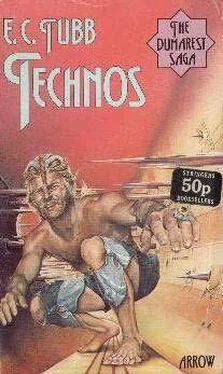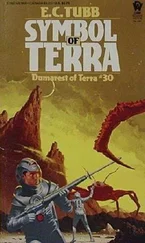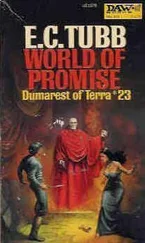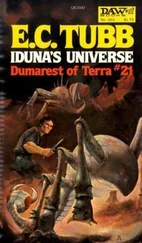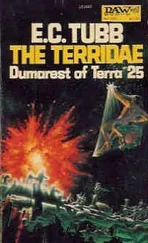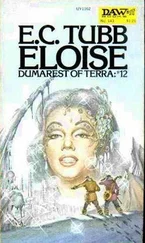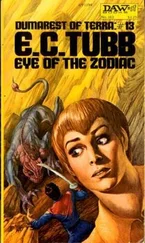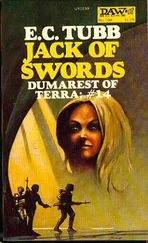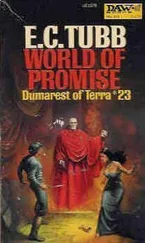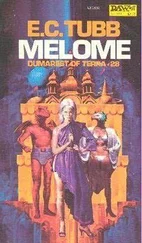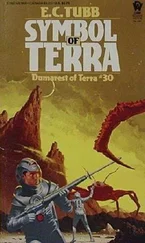E. Tubb - Technos
Здесь есть возможность читать онлайн «E. Tubb - Technos» весь текст электронной книги совершенно бесплатно (целиком полную версию без сокращений). В некоторых случаях можно слушать аудио, скачать через торрент в формате fb2 и присутствует краткое содержание. Жанр: Фантастика и фэнтези, на английском языке. Описание произведения, (предисловие) а так же отзывы посетителей доступны на портале библиотеки ЛибКат.
- Название:Technos
- Автор:
- Жанр:
- Год:неизвестен
- ISBN:нет данных
- Рейтинг книги:4 / 5. Голосов: 1
-
Избранное:Добавить в избранное
- Отзывы:
-
Ваша оценка:
- 80
- 1
- 2
- 3
- 4
- 5
Technos: краткое содержание, описание и аннотация
Предлагаем к чтению аннотацию, описание, краткое содержание или предисловие (зависит от того, что написал сам автор книги «Technos»). Если вы не нашли необходимую информацию о книге — напишите в комментариях, мы постараемся отыскать её.
Technos — читать онлайн бесплатно полную книгу (весь текст) целиком
Ниже представлен текст книги, разбитый по страницам. Система сохранения места последней прочитанной страницы, позволяет с удобством читать онлайн бесплатно книгу «Technos», без необходимости каждый раз заново искать на чём Вы остановились. Поставьте закладку, и сможете в любой момент перейти на страницу, на которой закончили чтение.
Интервал:
Закладка:
"Your information is out of date." Brekla enjoyed his momentary triumph. "He did escape."
"And was recaptured," said Ruen evenly. "That was inevitable if the Technarch had taken elementary precautions."
"You underestimate the man." Brekla was curious. What possible interest could the cyber have in Dumarest? That he was valuable to the Cyclan was obvious, but why? His restless mind probed the question. Perhaps it would be better for him not to rely on Ruen; if he could act alone he would be free of any obligations.
"The probability of you becoming the new Technarch is thirty-eight percent," said Ruen, as if he had read the other's mind. "That is if you operate alone. If you take advantage of my services the probability will rise to the order of ninety-one point seven. Now tell me about Dumarest. He was recaptured?"
"Finally, yes." Brekla recognized the threat and the promise. "He managed to get from the cell into the hospital. An adjoining chamber in which equipment was kept. Yendhal had it filled with anesthetic gas, and when Dumarest was unconscious, he was taken. The woman who must have aided him had vanished."
"A woman cannot escape from a closed room. It was closed?"
"Yes."
"And guarded?"
"It was watched all the time. Only the man was found." Brekla added, "The door opened once and closed immediately. No one came out. The guards swear to it."
"They were wrong, my lord. It was then the woman must have escaped. There can be no other explanation for her absence." Ruen did not elaborate. The woman was unimportant and could be ignored. Dumarest was another matter. But with Brekla's help he would no longer be a problem. "Can you bring Dumarest to me now?"
"No. Vargas has him safe." Brekla anticipated the cyber's question. "He is going to put him through the labyrinth."
* * *
Vargas stared fretfully at the screen and demanded impatiently, "Why doesn't he get on with it? What's he waiting for? Did you give him full instructions?"
Yendhal was soothing. "Of course, sire. But as yet we have not given him the signal to commence."
"Why not?"
"I am checking his external responses with electronic scanners, sire. The intensity of sweat, heat and emitted odor. The last is most interesting. As you know, an odor is actually minute particles which are translated into smell by a receptive organ. Emotions have recognizable odors. A dog will attack a man in fear and run from one in anger. Dumarest is experiencing neither."
Vargas was thoughtful. "He is not afraid?"
"Not as far as I can determine, sire. His temperature has risen a little but that is to be expected. The human metabolism being a heat mechanism will ready itself for action by consuming more fuel and thus gaining greater energy. He is not sweating which means that he is conserving that energy for later use. He is not afraid which means that he will be that much more efficient. There is a trace of resentment which is natural in any thinking organism forced to operate according to unwelcome dictates." Yendhal pressed a button and watched a flicker of lights. "The labyrinth is fully prepared. I have kept the programming exactly as before but it can, if necessary, be changed according to need."
He was too eager, thought Vargas, too quick to propose changing the system. Was he afraid that a deception might be discovered? Had Yendhal set the dangers too high in order to maintain his position, failing all subjects so as to keep him in suspense?
"There will be no change. I want everything exactly as it has been before."
"As you wish, sire."
"I do wish." Vargas leaned toward the screen and operated a control. "Dumarest, listen to what I say. It is the Technarch who speaks." He saw the small figure lift its head to scan the ceiling, turn to stare at the doors facing the small chamber. "At the signal you will pass through the door as you have been told. Within lie various hazards. Pass them all and you will be given a free pardon, money and passage from Technos. Speak if you understand."
"Go to hell," said Dumarest.
Vargas was a liar and was a fool to imagine that his lies would be believed. And Dumarest had no reason to pander to the inflated ego of the Technarch. He had been treated like a wild animal. Now, completely naked, he faced unknown dangers with his life the penalty for failure. He was in no mood to be polite.
Waiting, he scanned the room. Why were there so many doors? For the purpose of the experiment one should be enough. Were they to delude? To confuse? Or was it simply that this compartment had been built at the junction of many passages and that communication between them was still important?
He dropped, resting his ear against the floor, listening to soft vibrations. A muted thud, a scrape, the dull, repetitious beat of a mechanical heart. The room must be far underground, for the sounds he heard were the pumps of the ventilation system and the movements of attendant guards.
As he rose the light flashed red.
"He isn't going through the door," said Vargas. Anger thickened his voice and made it ugly. "If he refuses to obey I will have him flayed alive."
"He obeys, sire. He is merely being cautious." Yendhal lifted his hand, ready to reset the clock timing the experiment. "Already he is displaying a strong sense of survival. For all he knows danger could threaten from behind."
All the doors other than the designated panel were locked. Dumarest opened it, flung it wide and sprang aside. After a moment he dropped and thrust his head through the opening. The room was empty, a small compartment tapering in the shape of a wedge, the roof curved as if part of a tunnel. Again he listened to the sound of distant pumps and, faintly, caught the whir of fans.
The labyrinth, then, must be within the ventilation system, built in the colossal pipes and hidden from all without specialized knowledge. The special laboratories and operating theaters, too; no wonder Elaine hadn't known about them.
Rising, he turned and headed toward the remaining door.
It opened on a passage three feet wide, curving away to the right, the left blocked by a wall covered with long, pointed spikes. They were set close together, the entire surface a vicious bristle. Dumarest examined them, touching the points and feeling the burr of tiny barbs, the slight discoloration of the metal. A nerve poison, he guessed, an added inducement to stay away from the wall. Turning, he looked the other way. The passage was eight feet high, floor and walls covered with a tessellated design of red and yellow. The roof was luminous and cast a soft, shadowless glow. The curve swung sharply to the left, as if he stood in the hollow rim of a wheel.
He sprang forward as something touched his shoulders, stinging with sharp agony. The spiked wall was moving forward, silent, already beyond the edge of the door. It moved faster as he watched so that he had to back, finally turning again to face the empty passage.
It would contain mechanical traps, snares, devices which would maim or kill. The purpose of the wall was obviously to keep him moving, the spikes to prevent him clinging somehow to the surface. Yet the passage could not be totally impassable, if so there would be no point to the test.
The wall touched him again.
Dumarest ran down the passage. He ran at top speed, feet making a soft slapping noise against the floor, his eyes darting from side to side, every sense taut as he sought for danger. A less determined man would have moved as slowly as the wall allowed, trying to discern hidden traps, becoming confused with doubt and mounting fears. Dumarest was gambling the speed of his body against mechanical delay.
He felt the floor sink a trifle, saw a panel gape and something lash through the air. Behind him came a vicious crack. A whip perhaps? It was possible but he wasted no time on speculation. The sharpness of the curve and the speed of his progress threw him against the right hand wall. It sprouted tendrils, thick strands covered with a gooey slime, catching and hampering his body. He twisted, not touching the snares, moving so as to throw one against the other, creating a tangle from which he jerked free as the wall approached.
Читать дальшеИнтервал:
Закладка:
Похожие книги на «Technos»
Представляем Вашему вниманию похожие книги на «Technos» списком для выбора. Мы отобрали схожую по названию и смыслу литературу в надежде предоставить читателям больше вариантов отыскать новые, интересные, ещё непрочитанные произведения.
Обсуждение, отзывы о книге «Technos» и просто собственные мнения читателей. Оставьте ваши комментарии, напишите, что Вы думаете о произведении, его смысле или главных героях. Укажите что конкретно понравилось, а что нет, и почему Вы так считаете.
